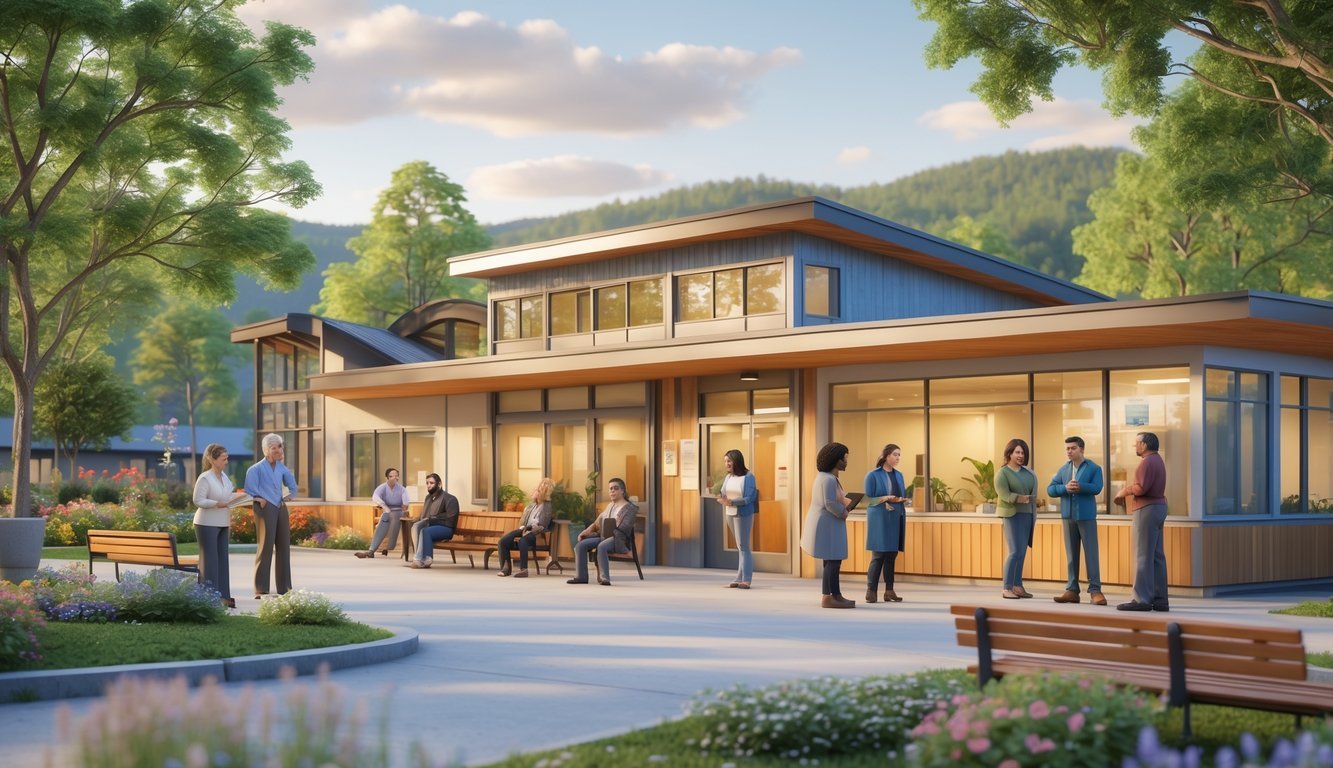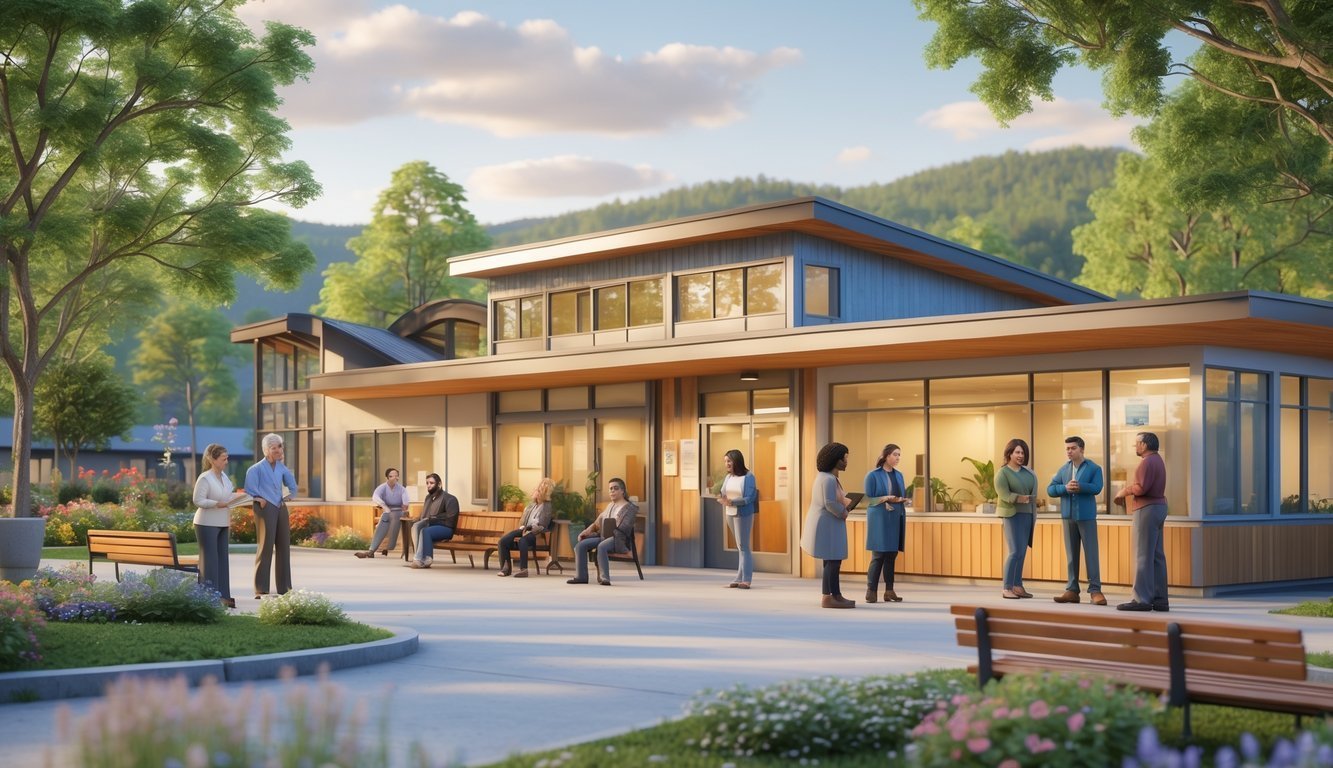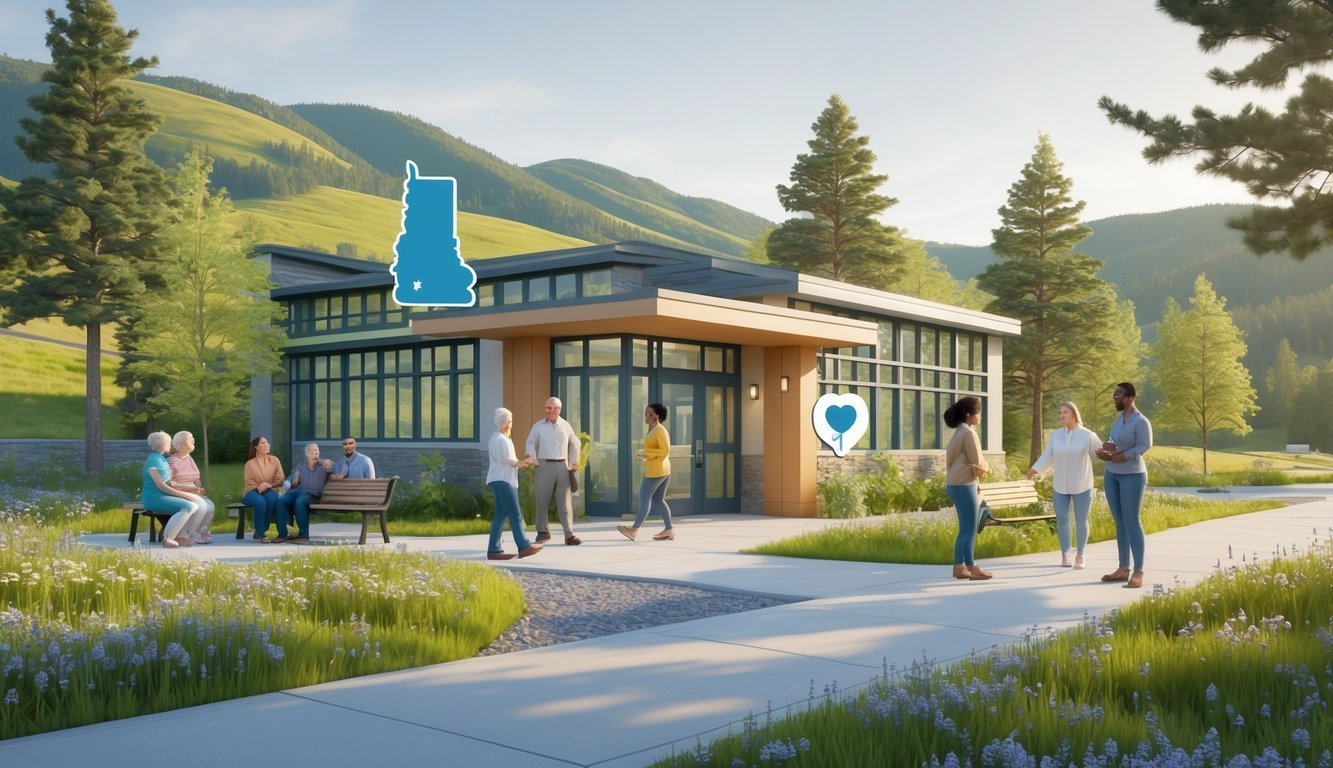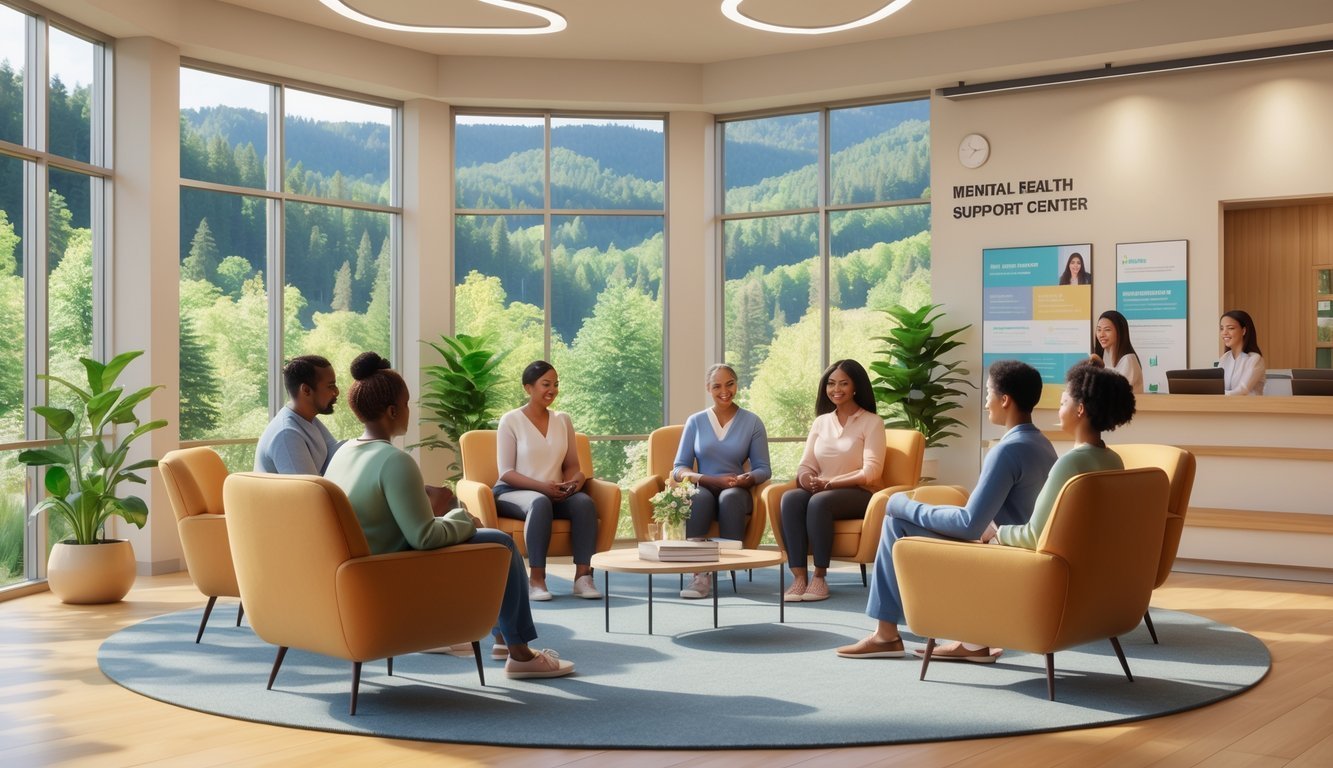PsychNewsDaily Publishers
100 Summit Drive
Burlington, MA, 01803
Telephone: (320) 349-2484
PsychNewsDaily Publishers
100 Summit Drive
Burlington, MA, 01803
Telephone: (320) 349-2484
Vermont offers a comprehensive network of free mental health services, including crisis support, therapy, and specialized programs for youth and families throughout the state.

If you’re dealing with mental health struggles in Vermont, you’re not alone. You also don’t have to worry about the cost of getting help.
Vermont offers a wide range of free mental health services through designated agencies, crisis support programs, and specialized resources for residents across the state. You’ll find everything from immediate crisis help to ongoing therapy and counseling.

The state has set up a network of support that covers every region. Designated Agencies provide mental health programs for adults and kids through private, non-profit groups that coordinate care locally.
No matter if you need someone to talk to right away or want to set up long-term support, you’ll find options tailored to your needs.
There are also special programs for students, families, and people facing specific mental health conditions. From emergency hotlines to peer counseling, Vermont’s got several ways to help you get care without worrying about money.

Vermont offers mental health support through state agencies and nonprofits so you can get care even if you can’t pay. The state relies on a network of designated agencies and special programs to deliver services everywhere.
Mental health covers your emotional, psychological, and social well-being. It shapes how you think, feel, and act each day.
Good mental health helps you manage stress, connect with others, and make healthy choices.
Mental health challenges can affect work, relationships, and your physical health. Conditions like depression, anxiety, bipolar disorder, and substance use issues are common and treatable.
Some important parts of mental health:
Handling emotions
Adapting to life changes
Building strong relationships
Managing stress
When people get help early, outcomes usually improve. That’s why Vermont works to make mental health services open to everyone.
Vermont uses several funding sources for free mental health care. Medicaid covers mental health services in Vermont and acts as the biggest funder nationwide.
The state also uses money from general revenue and federal grants. This way, you can get care even if you aren’t on Medicaid.
What Vermont offers:
Community Action Agencies help lower-income Vermonters with basic needs and connect you to mental health resources. They’re a good starting point for finding help.
Vermont’s network reaches both cities and rural towns. You can find services close to home.
The Department of Mental Health picks one Designated Agency in each region to provide programs for adults and kids. These are private, nonprofit providers.
Main state agencies:
Designated Agencies run programs, plan locally, and coordinate services in your area. They check outcomes and make sure people get what they need.
Specialized Service Agencies like NFI and Pathways Vermont work in several regions and use different approaches.
The state offers crisis help through programs like Starting Over Strong Vermont. You can call 802-651-1767 for free emotional support when things get tough.
Vermont’s colleges also provide mental health care. The University of Vermont’s Center for Health and Wellbeing gives medical and mental health services to students.

Vermont has several crisis hotlines available 24/7. You’ll also find peer support through Pathways Vermont and crisis intervention at the Howard Center.
If you’re facing a mental health crisis, Vermont offers 24/7 crisis support options you can use right away.
Emergency Numbers:
When you call First Call, trained counselors pick up and offer non-judgmental support. You can reach out any time, day or night.
Texting “VT” to 741741 connects you with a crisis counselor by text.
These services are free and confidential. You don’t need insurance or money to get immediate help.
Pathways Vermont acts as a specialized service agency providing peer support in different parts of the state.
Their peer support program links you to people who’ve faced similar mental health struggles. These peer specialists really get what you’re going through.
You can reach Pathways Vermont through your local agency or by calling them directly. Their focus is on recovery and helping you learn to manage your mental health.
They offer both phone and in-person support. Pathways Vermont helps you build coping skills and connects you with other local resources.
The Howard Center serves Chittenden County and runs crisis intervention services as part of Vermont’s mental health system.
Their crisis team responds to emergencies 24/7. You can call them through First Call or go directly to their crisis services.
What they offer:
The Howard Center works with local hospitals and emergency rooms. If you visit the University of Vermont Medical Center for a mental health crisis, their team might help with your care.
They try to keep you in the community when possible, offering alternatives to hospitalization with intensive support.

Vermont has several ways to get long-term mental health support. You’ll find free counseling, community peer programs, and advocacy groups that keep you connected.
Community mental health centers across Vermont provide free or sliding-scale counseling based on your income. These centers offer individual therapy, group sessions, and specialized programs.
The Vermont Department of Mental Health funds agencies in every region. You can get help even if you can’t pay.
Types of therapy available:
Many centers use proven treatments like cognitive behavioral therapy and trauma-informed care. You don’t need insurance to get help at these centers.
Some programs offer telehealth, which is handy if you’re in a rural area. Wait times can change depending on location and what you need.
Peer support connects you with folks who’ve had similar mental health experiences. These programs are led by people who’ve been there themselves.
Common peer support options:
Some groups focus on specific conditions, like depression or anxiety. Others cover general topics like wellness and coping.
Peer support specialists in Vermont get formal training and certification. They share advice based on their own recovery stories.
You’ll find groups at community centers, hospitals, and mental health organizations. Most are free and don’t require you to sign up in advance.
NAMI Vermont is the state chapter of the National Alliance on Mental Illness. They offer free classes, support groups, and advocacy across Vermont.
NAMI Vermont provides:
Trained volunteers with lived experience lead their groups. Family support groups are for people whose loved ones have mental illness.
NAMI Vermont also runs workshops about mental health conditions and treatment. They help you figure out how to get care in the system.
They advocate for better mental health policies and funding in Vermont. You can reach out for help finding local services.
Vermont has special mental health services for youth, adults, and families. The state uses referral networks and community systems to get you the right care.
Vermont’s Department of Mental Health works through Designated Agencies that provide mental health programs for adults and children in each region. These private nonprofits make sure services are available where you live.
Schools can team up with their regional Designated Agency for services like planning, community support, group treatment, and clinical assessment.
School-based services include:
The Hub and Spoke model offers extra Health Home support with special staff. You can get case management, care coordination, and family support through this program.
Adult mental health services use the same Designated Agency system. Each region has one main agency that coordinates care and checks outcomes.
Specialized Service Agencies like NFI and Pathways Vermont work in several regions and offer unique services for different needs.
Main adult services:
Multidisciplinary teams often handle complex cases. These teams bring together professionals from social services, mental health, medicine, and public health.
The William James INTERFACE Referral Service offers free, confidential mental health referrals for people in certain communities. If you need help, just call 888-244-6843 during their business hours.
Service hours:
The VT Helplink provides free alcohol and drug support all day, every day. You don’t have to share anything you’re not comfortable with, and they’ll actually listen.
You can reach out by phone or online, whichever feels easier. Their team works to match you with treatment options and local resources that make sense for you.